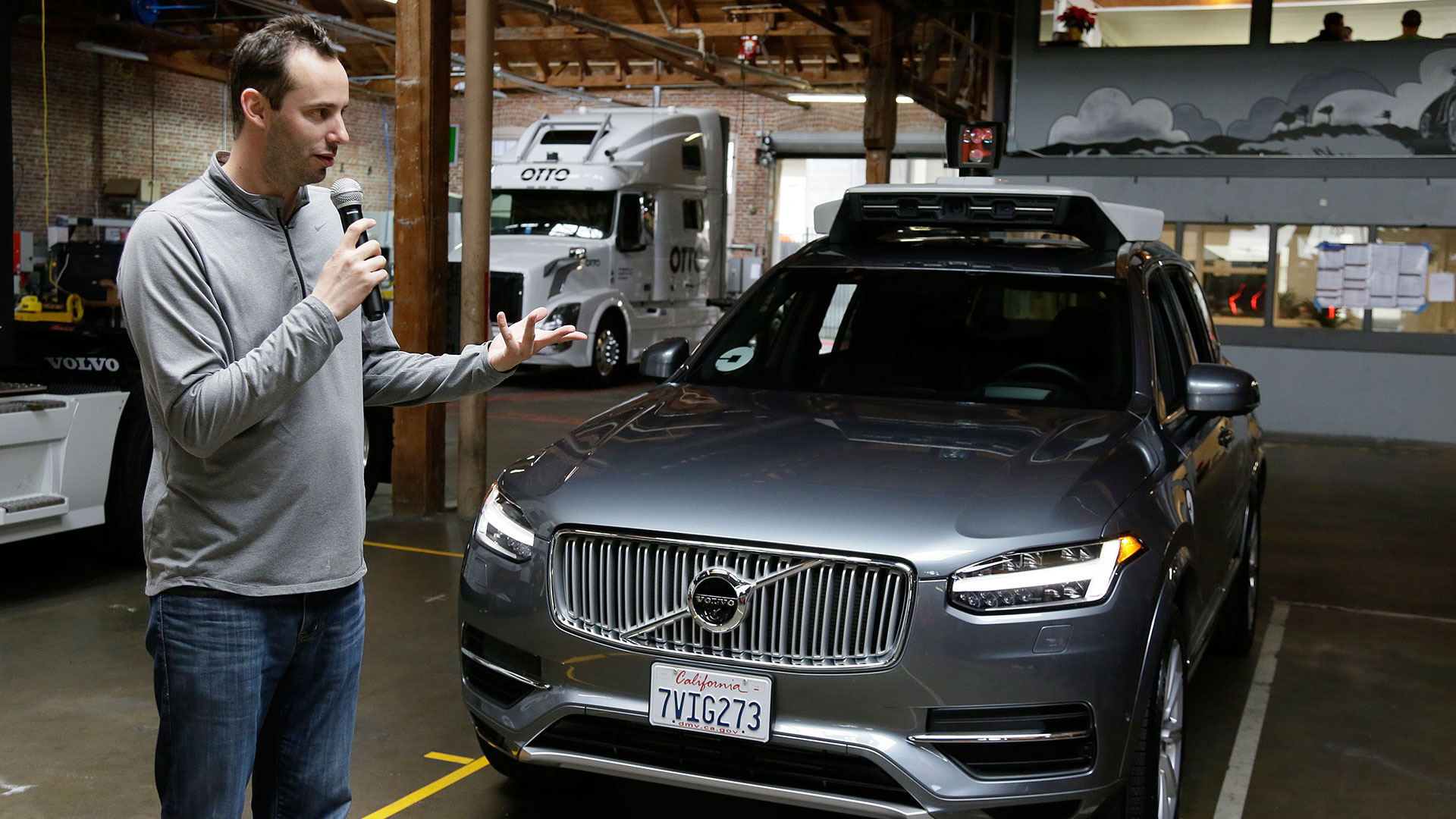

Are Uber’s self-driving vehicles illegal?
Yes, according to the California Department of Motor Vehicles. The DMV issues the Autonomous Vehicle Testing (AVT) licenses that permit a company to operate in autonomous mode–even if there is a driver behind the wheel ready to take over. The Drive spoke with the California Public Utility Commission (CPUC), which regulates livery services in the sate, and the spokesperson said that if the DMV requires a permit, and they are operating without a permit, then they are operating illegally. However, Uber believes that it is not an autonomous vehicle because their technology requires the presence and monitoring of a driver.
Do I have to accept a ride in a self-driving Uber?
No, consumers will first be asked by email to join this pilot program, and will have the opportunity to refuse a ride in an autonomous Uber in the app before it arrives.
Will I be recorded?
It’s possible. Uber says that it may record rides to help improve training. You have the option to opt out prior to accepting a ride with a self-driving Uber.
As the vehicle learns, it may get into accidents. What should I do if I get into an accident in a self-driving Uber?
As with any accident, you should first ascertain if there are injuries and request emergency response if needed. If no medical care is immediately needed, you should get the license and insurance information of the driver, and contact your own insurance if you have it. Also, it’s perfectly legal to ask for police assistance or to report the accident.
Are the drivers Uber employees, and how are they trained?
Uber uses a wholly owned subsidiary called Rasier to register the vehicles they operate in San Francisco, according to the PUC, which is the same company that it uses to contract and pay its network of drivers. Although Uber didn’t answer the question about employers of the drivers in the autonomous vehicles, it explained that its drivers of its autonomous vehicles are trained for three weeks on a closed course and have several sessions of shadowing another vehicle operator.
What is Uber’s insurance coverage?
Every registered vehicle in California is required to have a valid insurance policy that carries a minimum of liability insurance. Livery cars are required to carry insurance with a minimum of $750,000, and TNC (Uber X) are required to carry a combined $1 million liability policy. However, vehicles with a AVT permit are required to have $5 million in insurance or bonds. Although Uber declined to give specific numbers, a spokesperson said, “All self-driving vehicles are insured at levels well above California law, including the CPCU’s ridesharing requirements.” However, it’s worth noting that if Uber received an AVT, there would be no question about insurance coverage.
Since the DMV says Uber is operating illegally in California without a AVT permit, is there a chance that the insurance company will invalidate the policy?
No one knows. The Drive asked the California Public Utility Commission, the California Insurance Commission, and the California DMV this question, and no one had an immediate answer. The insurance commission surmised that the Uber did not answer this question, and its outside legal counsel declined to comment. “Part of it would depend on if the insurance company is aware that it is operating an autonomous vehicle, it can take on the risk regardless if they have the proper certification,” according to San Francisco attorney Chris Dolan. “It’s quite possible they have informed their insurance company that they are performing autonomous vehicle operations, and it’s possible that they didn’t,” he continued.
What do I do if I observe unsafe driving by the vehicle in autonomous mode?
In addition to complaining bitterly to Uber through the app and on Twitter, passengers or witnesses can lodge a formal complaint with California Public Utilities Commission’s consumer complaint division by calling 1-800-894-9444. They can also fill out a confidential “Potentially Unsafe Driver Form” and submit it to the DMV.